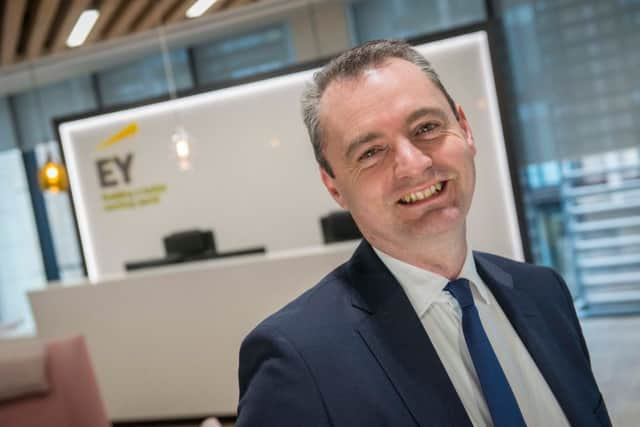EY partners bag £693k as Scottish growth beats UK


Fee income grew by 5 per cent north of the Border in the year to 30 June, almost double the 2.7 per cent seen across the wider UK business.
The rise in total fee income to £2.4 billion saw average distributable profit per EY partner rise to £693,000, up by £16,000 on 2017’s figure, although it is less than the £712,000 received by PwC partners and £832,000 at Deloitte. Figures from the other Big Four player, KPMG, are expected at the end of the year.
Advertisement
Hide AdAdvertisement
Hide AdMark Harvey, EY’s senior partner in Scotland, said it had been the tenth successive year of growth for the practice in Scotland.
“The positive financial performance has been supported by the efforts of our transactions team by consistently delivering on deals for clients with an increasing number from the mid-market space in addition to big corporates,” said Harvey, who oversees a team of 1,000 across four offices in Scotland.
He highlighted recent work on high-profile deals such as the disposals of Simon Howie’s Mermaid Panels and Shore Laminates to Wilsonart, QTS Group to Renew, Forth Ports to the PSP consortium and the acquisition of Esco by Weir Group.
Across the firm’s UK services areas, tax fee income grew by 7.3 per cent, advisory grew by 3.8 per cent and transaction advisory services by 1.5 per cent.
Assurance growth fell by 1.7 per cent while audit grew by 4 per cent. Financial services, the UK’s largest sector, grew by more than 7 per cent.
EY recently announced that the firm’s UK board will be split equally between men and women from December. Harvey said: “The ambition of achieving long-term growth will be helped by having a strong leadership team which is invariably more diverse. In Scotland, our current partner group has 41 per cent female representation and includes those from industry or with international experience, all of which brings valuable and varied insight.”
EY now employs more than 14,500 people across 23 offices in the UK, serving 23,000 UK clients. In Scotland 117 recruits were taken on during the year, which also saw the practice increase its number of technology specialists to 100.
The practice also changed its recruitment process for graduates and school-leavers to boost diversity, following on from a move to remove academic entry requirements.
Advertisement
Hide AdAdvertisement
Hide AdChanges this year included the removal of the conventional “one-to-one” final interview, typically held at the end of a recruitment process, with candidates instead taking part in an assessment event aimed at providing a more rounded view of each jobseeker.
The UK-wide business made a total tax contribution of £900m after distributable profits before tax increased by 1.7 per cent to £472m.